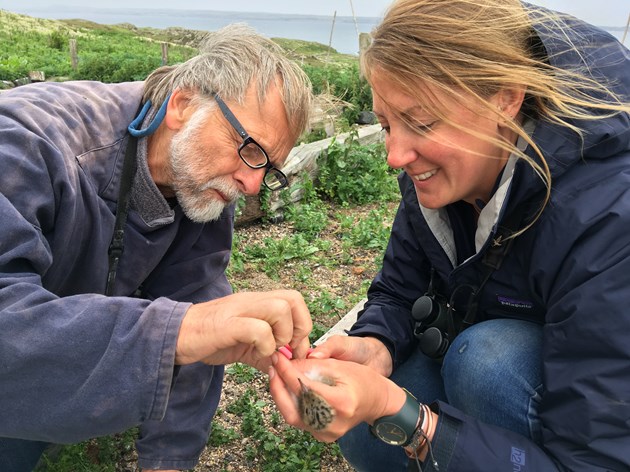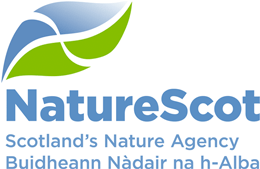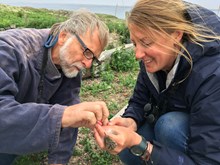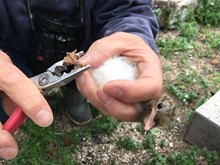06 September, 2019
Rare tern breeds on the Isle of May

An extremely rare seabird has raised its chick on the Isle of May this summer – a clear sign that conservation action on the national nature reserve is working.
An adult roseate tern joined common, sandwich and Arctic tern colonies on the Scottish Natural Heritage (SNH) reserve in early June and paired with a common tern. The unlikely couple produced a single chick which successfully fledged in early August.
Roseate terns are on the Red Data list as a species of high conservation concern.
No other roseate terns currently breed in Scotland. The only colony in the U.K. is in Northumberland, with single pairs in North Wales.
With its stunning white plumage, long black-tail streamers and black cap and beak, the roseate tern is an eye-catching sea-bird. Its name comes from the pinkish tinge adults develop on their underside in summer.
Special ‘tern terraces’, built by SNH staff, attracted the bird to the island. These large, square areas are covered in sand and gravel, with custom tern boxes added to help aid nesting.
David Steel, SNH Nature Reserve Manager, explained, “We started constructing the first tern terraces on the island to help increase nesting habitat for terns in 2015.
“Over the last three years, we’ve increased both arctic and common tern breeding numbers, while also attracting sandwich terns back to the island. But this year, we have gone one better with this stunning roseate tern. Providing the right habitat and safe nesting sites for roseate terns is a major breakthrough.
“Although this year’s chick is the result of a hybrid pair, we will hopefully attract a pair of roseates in the next few years and bring another species back to Scotland as a regular breeder.”
Dr Paul Morrison, UK Roseate Tern Ambassador, added, "I am delighted that the Isle of May has attracted a roseate tern this year. I am confident, that with careful management of the habitat, this year marks the start of the return of the roseate terns to this wildlife haven.”
Roseate terns have been designated for protection under the government's national Biodiversity Action Plan. As part of this, an EU-funded roseate tern LIFE Recovery Project was established to enhance breeding conditions at the core colonies in the UK. The project also aims to improve five former roseate tern SPAs (Special Protection Areas), which includes islands in the Firth of Forth.
-ENDS-
MEDIA QUERIES
For more information, contact the SNH press office on snhmedia@nature.scot or 0131 316 2655.
Contact information
- Name
- NatureScot Media
- Telephone
- 0131 316 2655
- media@nature.scot
Notes to editors
Roseate terns are extremely rare breeding birds in the UK with only two confirmed nesting locations, with 122 pairs on Coquet Island (owned and managed by the RSPB) off Northumberland and four pairs in North Wales.
NatureScot is Scotland's nature agency. We work to enhance our natural environment in Scotland and inspire everyone to care more about it. Our priority is a nature-rich future for Scotland and an effective response to the climate emergency. For more information, visit our website at www.nature.scot or follow us on X at https://x.com/NatureScot
’S e NatureScot buidheann nàdair na h-Alba. Bidh sinn a’ neartachadh àrainneachd na h-Alba agus a’ brosnachadh dhaoine gu barrachd suim a chur ann an nàdar. Tha e mar phrìomhachas againn gum bi nàdar na h-Alba beairteach agus gun dèilig sinn gu h-èifeachdach le èiginn na gnàth-shìde. Tha an tuilleadh fiosrachaidh aig www.nature.scot no air X aig https://x.com/NatureScot


